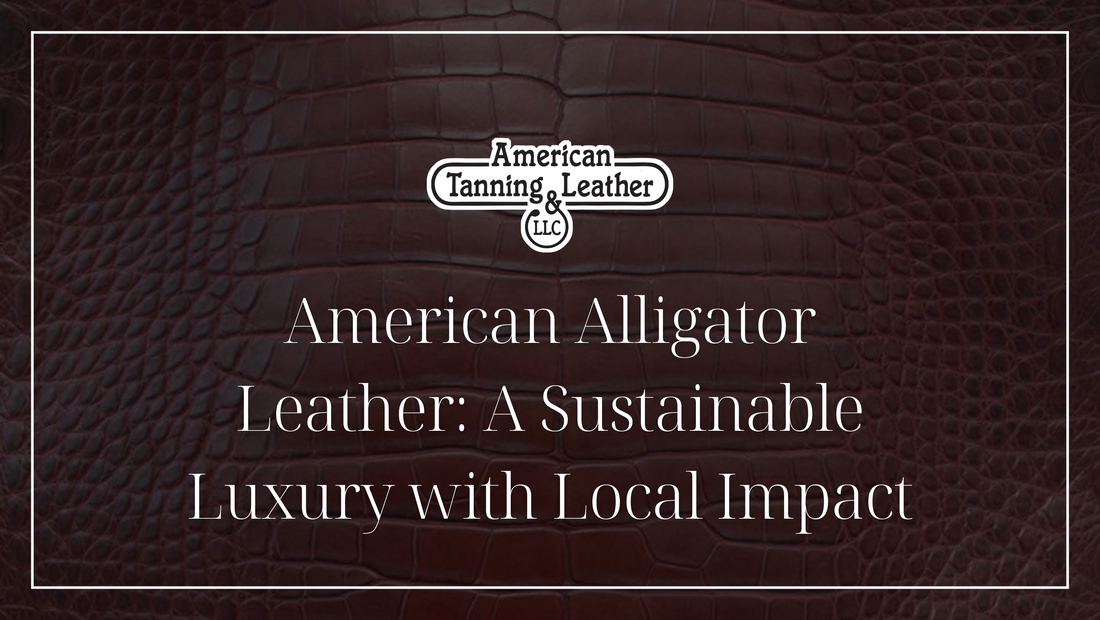
American Alligator Leather: A Sustainable Luxury with Local Impact
Share
Alligator Leather: The Top Choice for Luxury Goods
In the world of luxury fashion, few materials evoke the sense of opulence and refinement quite like American alligator leather. Renowned for its exquisite texture, durability, and sustainability, American alligator leather represents the epitome of luxury craftsmanship. But what sets it apart from other exotic leathers, such as Nile crocodile? Let's delve into the unique qualities that make American alligator leather the ultimate choice for discerning consumers, while also making a positive impact on local economies and conservation efforts within the United States.
Distinctive Texture: American alligator leather boasts a texture that is both distinctive and luxurious. Its small, round, and pebbled flank tiles create a visually captivating pattern that adds depth and character to leather goods. In contrast, Nile crocodile leather may have larger scales, resulting in a texture that lacks the refined appearance of American alligator leather. This intricate texture sets American alligator leather apart, making it highly sought after by fashion enthusiasts and luxury brands alike.
Value Based on Size: The size of the tail plays a significant role in determining the value of American alligator leather. Unlike Nile crocodile skins, which typically have narrower tails, farm-raised American alligator tails are notably wider. This difference in size directly impacts the square footage of the leather produced, making American alligator leather more valuable in terms of size and quality. Additionally, the method of measuring further enhances the value of American alligator leather, ensuring that it offers exceptional value based on its size and quality.
Sustainability: American alligator leather production operates within a sustainable framework that supports both conservation and commerce. Unlike Nile crocodiles, which are predominantly bred in closed-loop captivity systems, American alligators are primarily sourced from ranching systems. This process involves collecting eggs from the wild, providing an essential link to natural habitats. The revenue generated from the sale of American alligator leather supports local economies, creates jobs, and fosters economic growth in regions like Louisiana and Florida. Additionally, the presence of American alligators contributes significantly to tourism in these states, further stimulating local economies.
USA Origin: Choosing American alligator leather also contributes to domestic conservation programs aimed at protecting and preserving alligator habitats and populations. The sustainable harvesting practices implemented in American alligator ranching systems ensure the long-term viability of alligator populations while conserving wetland ecosystems. Furthermore, the revenue generated from the sale of American alligator leather helps fund domestic conservation efforts, highlighting the importance of supporting local economies and preserving natural resources.
In conclusion, American alligator leather represents more than just luxury—it embodies sustainability, ethicality, and a commitment to local communities and conservation efforts. By choosing American alligator leather, consumers can indulge in the timeless allure of luxury craftsmanship while making a positive impact on local economies, supporting tourism, and safeguarding natural resources for future generations.
